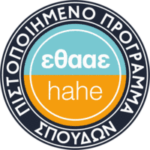| Sector |
Field of Regional Science |
| Office |
New Building, Ζ12, 7 Floor |
| About |
Kostas Bithas is a Professor in Environmental and Natural Resources Economics at the Panteion
University, Department of Economic and Regional Development, Athens, Greece and Member of the
Board of Directors of the Institute of Urban Environment and Human Resources Research team on
Environmental Economics and Sustainable Development (www.eesd.gr). Academic fields: Sustainable
Development, Ecological Economics, Natural Resources Economics, Environmental - Economic
modeling, Environmental impact assessment, Transport Economics, Decision making, Policy
evaluation. RECENT BOOKS: K. Bithas, P. Kalimeris, 2016. Revisiting the Energy-Development Link.
Evidence from the 20th Century for Knowledge-based and Developing Economies. SpringerBriefs in
Economics. Springer.
Full curriculum vitae |
| Recently published |
1. Bithas, K., & Kalimeris, P., (2017). The Material Intensity of Growth: Implications from the Human Scale of Production. Social Indicators Research Vol. 133 (3), pp. 1011–1029. http://link.springer.com/article/10.1007/s11205-016-1401-7
2. Bithas, K., Latinopoulos, D., Kolimenakis, A. and Richardson, C., (2018). Social benefits from controlling invasive Asian tiger and native mosquitoes: a stated preference study in Athens, Greece. Ecological Economics, 145, pp.46-56.
3. Bithas, K., & Kalimeris, P., (2018). Unmasking decoupling. Redefining the Resource Intensity of the Economy. Science of the Total Environment, 619-620C: pp. 338-351
http://www.sciencedirect.com/science/article/pii/S004896971733114
4. Bithas, K., & Kalimeris, P., (2018). Matter matters. Reconsidering the (de)materialization of a hundred years of growth. Journal of BioPhysical Economics and Resources Quality 3(1): 1-10.
https://link.springer.com/content/pdf/10.1007%2Fs41247-017-0034-z.pdf
5. Latinopoulos, D., Mentis, C., Bithas, K. (2018). The impact of a public information campaign on preferences for marine environmental protection. The case of plastic waste, Marine Pollution Bulletin, 131, 151-162. 6. A Kolimenakis, K Bithas, D Latinopoulos, C Richardson, 2019. On lifestyle trends, health and mosquitoes: Formulating welfare levels for control of the Asian tiger mosquito in Greece. PLoS neglected tropical diseases 13 (6), e0007467.
7. K Bithas, 2019. A bioeconomic approach to sustainable development: Incorporating ecological thresholds within intergenerational efficiency. Sustainable Development 2019, 1-9. https://doi.org/10.1002/sd.2027 8. Antonios Kolimenakis, Dionysios Latinopoulos, Kostas Bithas, Clive Richardson, Konstantinos Lagouvardos, Angeliki Stefopoulou, Dimitrios Papachristos, Antonios Michaelakis, 2019. Exploring public preferences, priorities, and policy perspectives for controlling invasive mosquito species in Greece. Tropical medicine and infectious disease 4 (2), 83. 9. P Kalimeris, K Bithas, C Richardson, P Nijkamp, 2020. Hidden linkages between resources and economy: A “Beyond-GDP” approach using alternative welfare indicators. Ecological Economics 169, 106508. https://doi.org/10.1016/j.ecolecon.2019.106508 10. K Bithas, 2020. A bioeconomic approach to sustainability with Ecological thresholds as an operational indicator. Environmental and Sustainability Indicators 6, 100027. https://doi.org/10.1016/j.indic.2020.100027 |





